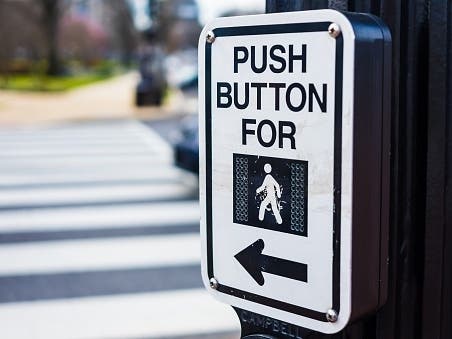Richard Milton walked out of his medical appointment in Culver City into the midday solar. He wanted to get again to the storage area he calls residence. Black, 66, and a proud Army veteran, Milton has struggled with homelessness for years. “The garage is my sanctuary,” he stated. “I have privacy there.”
Milton appeared each methods earlier than crossing the road midblock. He was nearly to the bus cease when a police automobile slowed, lights flashing. Two officers wrote him up for jaywalking – a $198 quotation that rapidly rose to greater than $500 due to late charges (known as civil assessments), assessed after he could not pay.
His expertise encapsulates why a rising coalition is supporting the Freedom to Walk Act, Assembly Bill 1238, which might repeal California’s jaywalking legal guidelines. Authored by state Sen. Phil Ting, a Democrat representing San Francisco, the invoice would make it authorized to cross the road as Milton did, like so many people do: in a commonsense, protected means. Slapping individuals with fines for abnormal and logical habits doesn’t make our streets safer. In truth, it does extra hurt than good.
The time period “jaywalking” has a telling historical past. In the early twentieth century, “jay” was frequent slang for a hick or rube. The time period “jaydriver” referred to individuals who drove their horse and buggy on the improper facet of the street. When cars started to dominate streets, pedestrian deaths…



























































